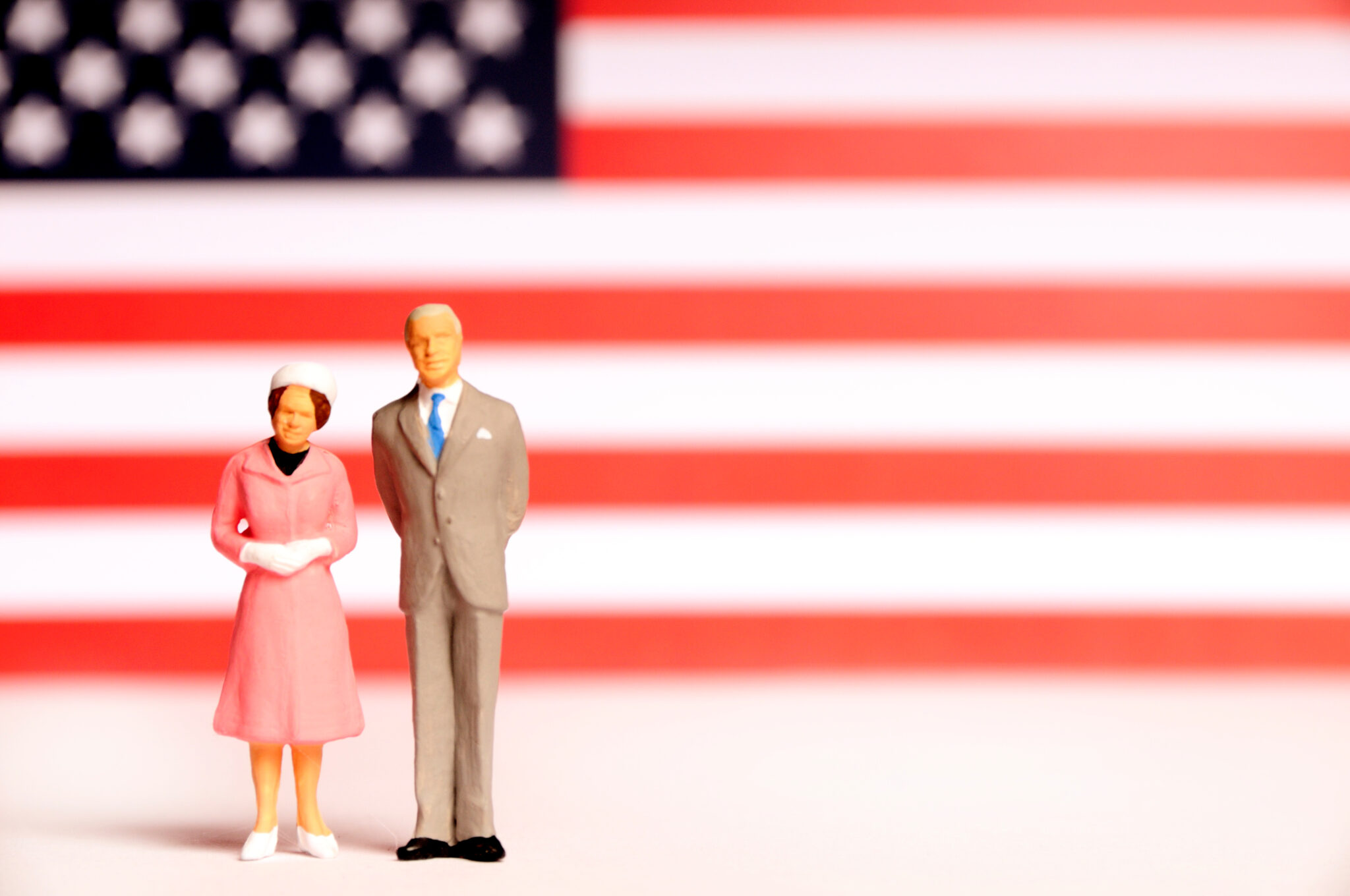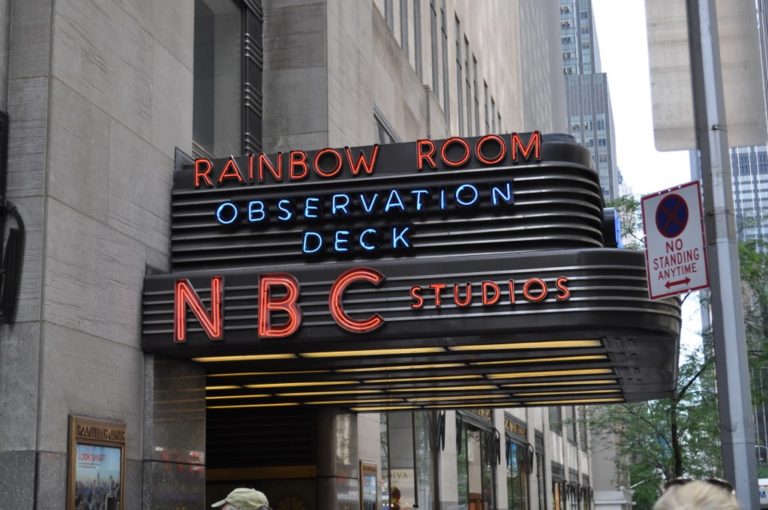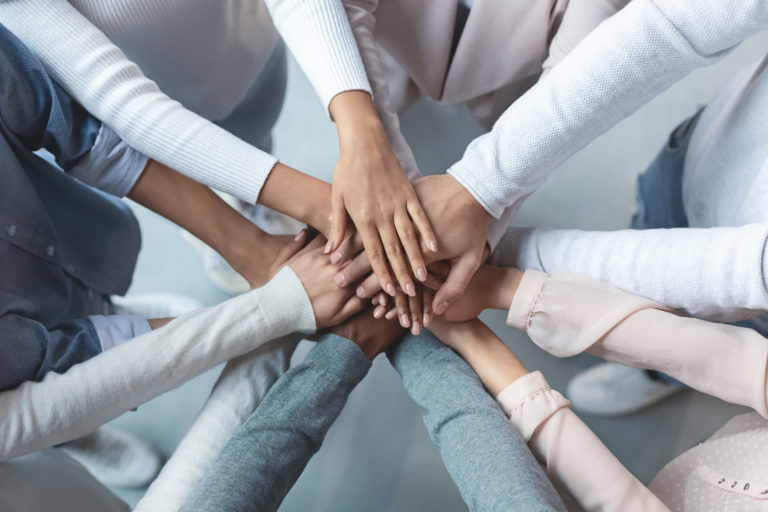The race to 2020 has seen a record number of women candidates, women on…
Why We Should Study First Ladies

The recent passing of Rosalynn Carter was followed by tributes to her lifelong commitment to public service, especially her work on mental health, human rights, and support for caregivers. Her many firsts as a First Lady may have come as a surprise to many, and not just those born after the Carter administration. It is likely that Americans who watched, listened to, or read about Rosalynn Carter since her death on November 19, 2023, had no idea that she visited seven Latin American countries representing her husband to discuss substantive policy issues, or that until she was First Lady there was no designated office space or budget for her and her staff.
As we teach courses on First Ladies or lecture about them to a variety of audiences, we are usually met with the question: “Why didn’t we learn this before?” There are some good reasons why the myriad contributions of American’s First Ladies are unknown to later generations or unheralded at the time they support their husband’s administration. History is written by those in power, and for much of history, it has been men who write it. Marginalized groups which include women, are treated as footnotes of history at best. However, many First Ladies made history along with their husbands, as Rosalynn Carter did, and some facilitated the history that their husbands made.
While there are enough examples to fill a book—and we have written two books along with Nancy Kegan Smith featuring them—the following are a few significant ones. Mary Todd Lincoln scores near the bottom in similar polls about First Ladies, despite Abraham Lincoln being considered the best president in rankings by historians. However, Mary Lincoln was instrumental in her husband’s rise in politics and saved him from potential obscurity that might have prevented him from being president. Lincoln was offered the territorial governorship of Oregon at a time when the Whig party was on the decline and about to be replaced by the current Republican party and the issues of territorial expansion of slavery was being decided. Mary knew that if Lincoln went out west, he would not be part of these historic changes.
Teddy Roosevelt won the Nobel Peace Prize in 1906 for his work in ending the Russo-Japanese War through the Treaty of Portsmouth. Without back-channel support from his wife Edith, Teddy could not have effectively mediated the conflict’s end. Edith was the conduit for communication between Sir Cecil Spring-Rice, a British diplomat in St. Petersburg, Russia, and U.S. Ambassador to England Whitelaw Reid informing her of developments which she passed along to her husband. Edith’s aunt Eleanor was her husband Franklin’s eyes, ears, and legs traversing the country to provide him with information about the impact of the Great Depression as he crafted his New Deal. Eleanor did much more in her own right on human rights, civil rights, and women’s rights.
Lady Bird Johnson made a solo campaign trip, the first for a first lady, throughout the South when her husband could not campaign there after his support of the 1964 Civil Rights Act that effectively began the end of Jim Crow laws in the South. She set the stage for future first ladies to be active campaigners with their own agendas.
Betty Ford made a public statement about her breast cancer at a time when neither “breast” nor “cancer” could be said in the news. Her openness about the diagnosis, her treatment, and the need for women to get exams saved thousands of lives.
Barbara Bush held an orphaned infant infected with AIDS and the photo went viral leading to her to connect her husband to efforts to find treatments and reduce fears. George H.W. Bush’s administration doubled funding for AIDS research and endorsed antidiscrimination legislation—the Hate Crimes Act.
And it isn’t just during their White House years that First Ladies make a difference. Throughout their post-White House years first ladies continue to serve the country and world. Eleanor Roosevelt chaired the UN Committee that drafted the Universal Declaration of Human Rights. Lady Bird Johnson’s environmental work lives on in a Texas foundation; Barbara Bush’s literacy foundation continues to award grants to expand literacy programs across the country; the Hazelden Betty Ford Center saves lives through its addiction treatment programs; Hillary Clinton devoted her years as Secretary of State and to the present time to global women’s issues; Laura Bush’s foundations support libraries and women’s health and she continues her interest in Afghan women; and Michelle Obama continues her programs to support girls’ education and healthy food for children.
While we mourn Rosalynn Carter’s passing, it is an opportunity to acknowledge the change she made in the world and increase awareness of the importance of the role of the First Lady in history and in our daily lives. Let’s change, “Why didn’t I learn this before?” to “Let me tell you about…”
Dr. Diana Carlin and Anita B. McBride will be joining Executive Director of the American University’s Women & Politics Institute for a “Women on Wednesdays” event to discuss their textbook “U.S. First Ladies: Making History and Leaving Legacies.” The discussion is today at 6 p.m.! Register here to join: https://t.co/5Teg77EAFN.
Dr. Diana Carlin is a retired KU professor of communication studies and former administrator and a professor emerita of communication at Saint Louis University. Dr. Carlin is known for her work on presidential debates and women in politics. She is active in the Lawrence community through Sister Cities Lawrence, Lawrence Rotary Club,and Lawrence Breakfast Optimist Club and is frequent speaker for community groups on women’s history and presidential history. She developed her love of history and museums as a child through family visits to museums and historic sites. She is in her second year on the Board and serves as Secretary.
Anita B. McBride is executive-in-residence at the Center for Congressional and Presidential Studies in the School of Public Affairs at American University in Washington, D.C. She directs programming and national conferences on the legacies of America’s first ladies (the First Ladies Initiative) and their historical influence on politics, policy, and global diplomacy.
McBride’s White House service spans two decades and three presidential administrations including as assistant to President George W. Bush and chief of staff to First Lady Laura Bush from 2005 to 2009. McBride is on the board of the White House Historical Association and is an advisor to George W. Bush Institute and several global non-profit organizations. She is a founding member of FLARE and is a co-author of U.S. First Ladies: Making History and Leaving Legacies.






